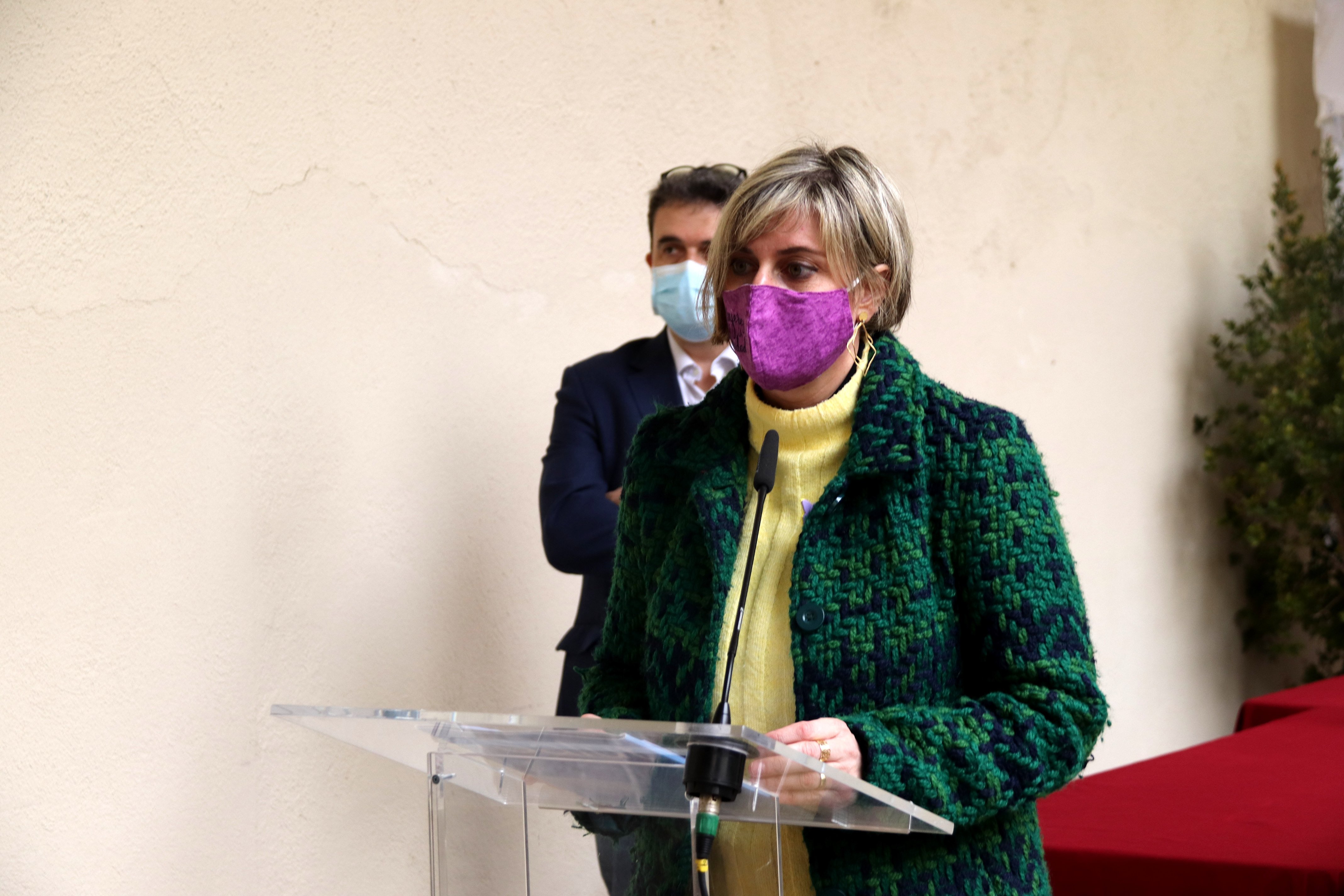Catalan health minister Alba Vergés has said that if Spain's current age limit of 55 for those receiving AstraZeneca shots is eliminated, priority will then be given to vaccination by age groups and not by groups defined by other characteristics, so that the first to receive the injection would be people aged 80 and over, with the aim of reducing mortality and intensive care admissions.
This, after Spain announced on Thursday it would resume AstraZeneca shots next week, with the European Medicines Agency having assured that the vaccines were "safe and effective" after the earlier detection of thrombosis cases. Alba Vergés stressed that the decision to not resume AstraZeneca shots until Wednesday in Spain does not mean that time is being wasted, according to statements she made at the Pius Hospital, in Valls. She also called on the public to be very careful if travelling this weekend.
The return of AstraZeneca, good news
Vergés stressed that it is good news to be able to resume vaccination with the AstraZeneca vaccines from next Wednesday, and she recalled that on Friday and Saturday the Spanish-level Vaccines Committee and Public Health Commission will meet to decide the basis for the administration of the vaccines in terms of priority groups, whether it is necessary to restrict any profile and if the current age limit of 55 is to be raised. The final decision on age limits, in any case, will be known on Monday at another meeting of the Interterritorial Council, attended by heads of all the autonomous community health systems in Spain.

Alba Vergés visited the Pius Hospital de Valls / ACN
What is clear is the position of Vergés herself, after she again called for the removal of the current 55-year age limit and for vaccination to be resumed based on age. "It is not an emphasis on specific groups, but rather the need to deal with the at-risk population, in the first place, those whose vaccination will lead to a reduction in mortality, and also the reduction in intensive care admissions; we believe that it is key", the minister summed up.
"Much more agile"
As well, she said that unadministered vaccines over the last few days will force the department to conduct the process at a "much more agile pace." "We are prepared to get up to this more agile pace and to be able to vaccinate as many people as possible, with experience from other countries which have already vaccinated a much higher percentage of the population because they have had more available," she added.
She also said that the department was concerned about the situation of the data in recent days, with new infections stagnating after a long period of fall, and said she hoped there would be no rise in contagion indices. "We have more than 400 critical cases admitted and about 1,400 patients in conventional beds; we have to be very careful not to take risks," she said, referring to the fact that this weekend will be the first when non-essential shops can open and with reduced mobility limitations for travel by those in the same bubble group.
For this reason, she once again called for the responsibility of the public to maintain safety measures and prevent social interaction outside the household bubbles. Asked about the situation of the Vall d'Aran, given the possibility that it is one of the territories with the highest influx of visitors, the minister also called for maximum caution. "Any movement that is made by a bubble group in this territory must be carried out with the maximum safety and social interaction must not be sought, because we cannot control the pandemic, whether in Aran or anywhere else", she concluded.
Main image: Alba Vergés, this Friday in Valls / ACN

